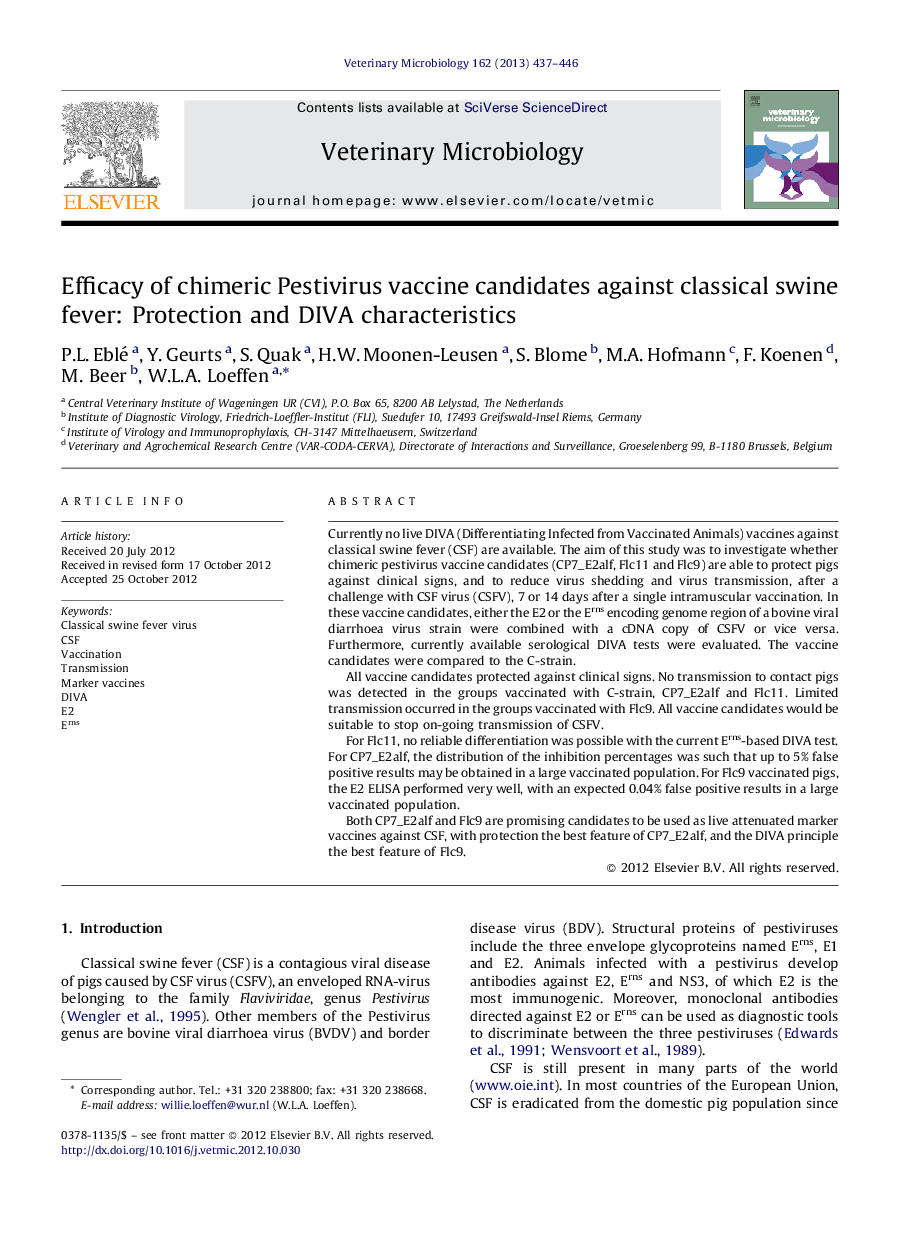| Article ID | Journal | Published Year | Pages | File Type |
|---|---|---|---|---|
| 5801021 | Veterinary Microbiology | 2013 | 10 Pages |
Currently no live DIVA (Differentiating Infected from Vaccinated Animals) vaccines against classical swine fever (CSF) are available. The aim of this study was to investigate whether chimeric pestivirus vaccine candidates (CP7_E2alf, Flc11 and Flc9) are able to protect pigs against clinical signs, and to reduce virus shedding and virus transmission, after a challenge with CSF virus (CSFV), 7 or 14 days after a single intramuscular vaccination. In these vaccine candidates, either the E2 or the Erns encoding genome region of a bovine viral diarrhoea virus strain were combined with a cDNA copy of CSFV or vice versa. Furthermore, currently available serological DIVA tests were evaluated. The vaccine candidates were compared to the C-strain.All vaccine candidates protected against clinical signs. No transmission to contact pigs was detected in the groups vaccinated with C-strain, CP7_E2alf and Flc11. Limited transmission occurred in the groups vaccinated with Flc9. All vaccine candidates would be suitable to stop on-going transmission of CSFV.For Flc11, no reliable differentiation was possible with the current Erns-based DIVA test. For CP7_E2alf, the distribution of the inhibition percentages was such that up to 5% false positive results may be obtained in a large vaccinated population. For Flc9 vaccinated pigs, the E2 ELISA performed very well, with an expected 0.04% false positive results in a large vaccinated population.Both CP7_E2alf and Flc9 are promising candidates to be used as live attenuated marker vaccines against CSF, with protection the best feature of CP7_E2alf, and the DIVA principle the best feature of Flc9.
